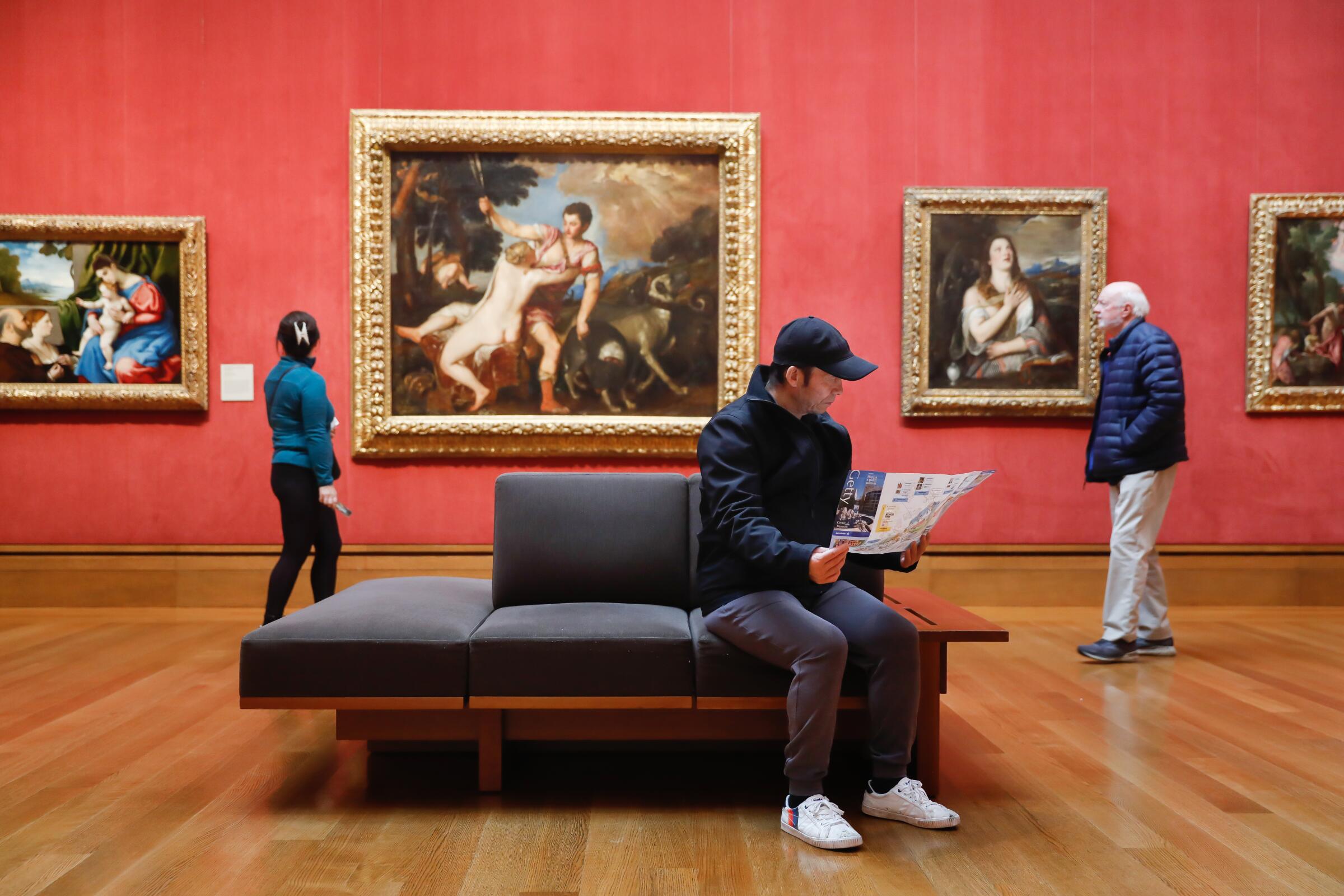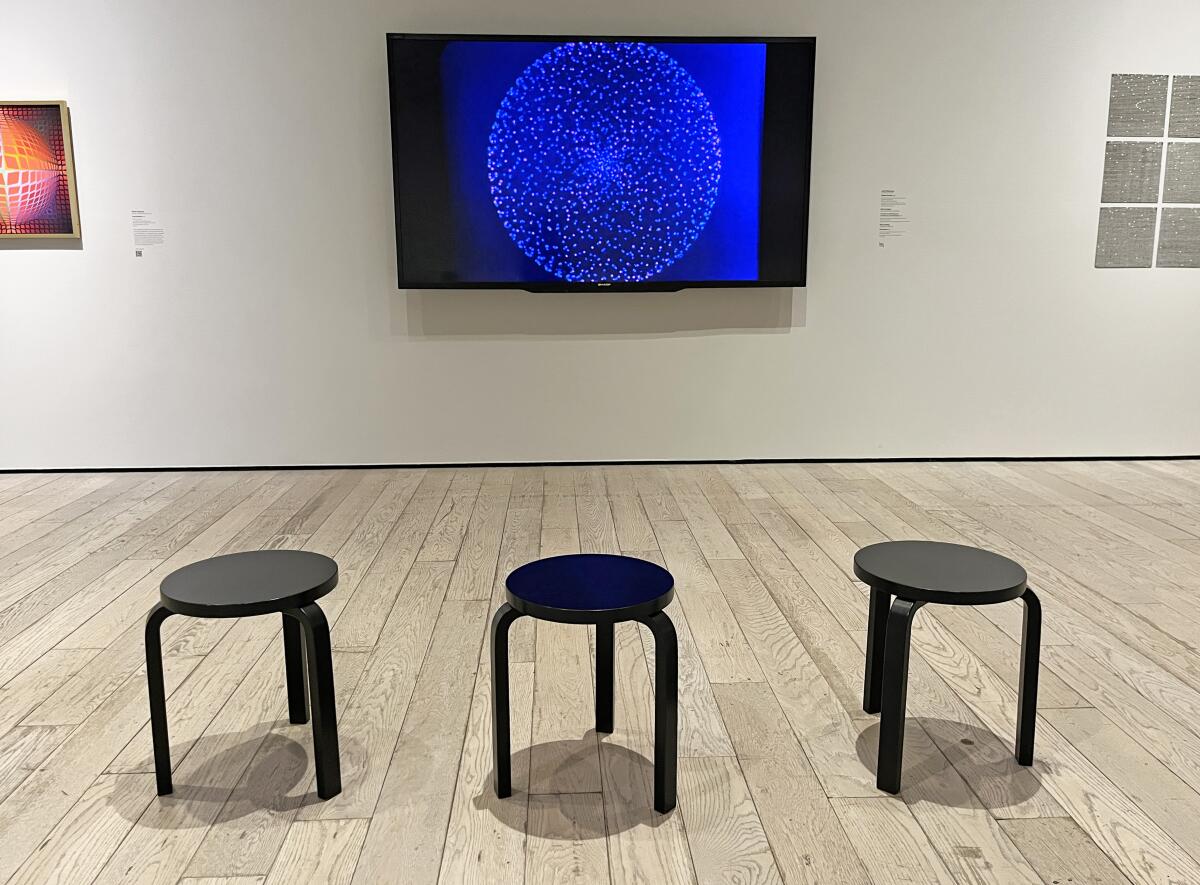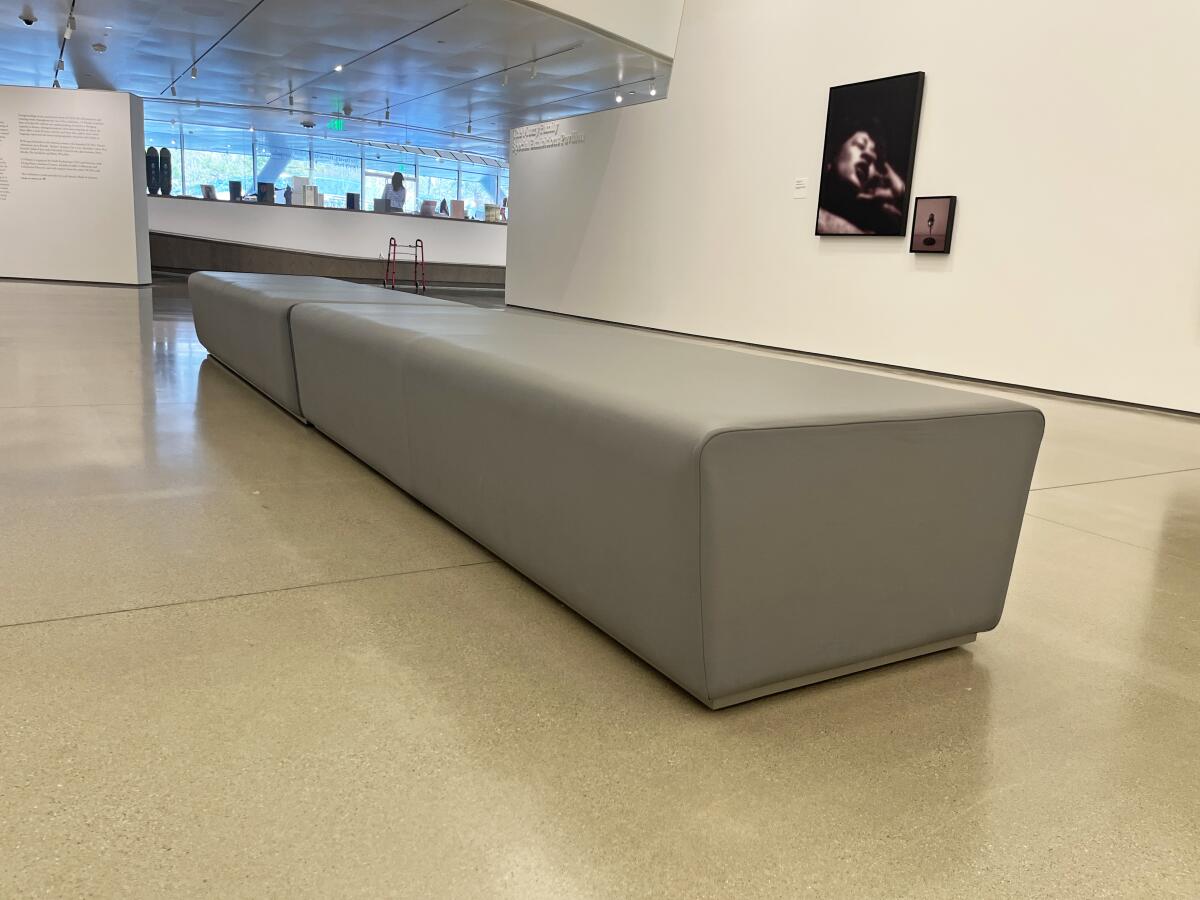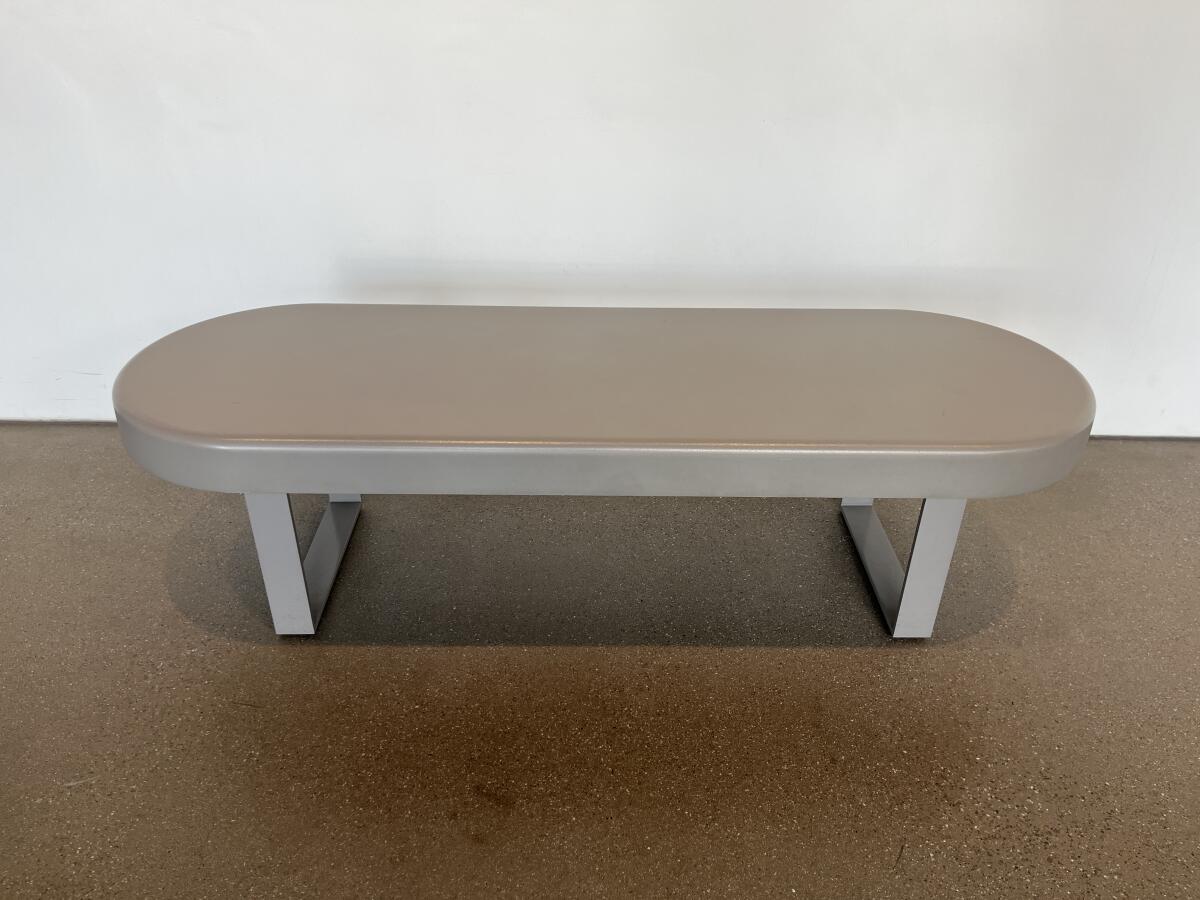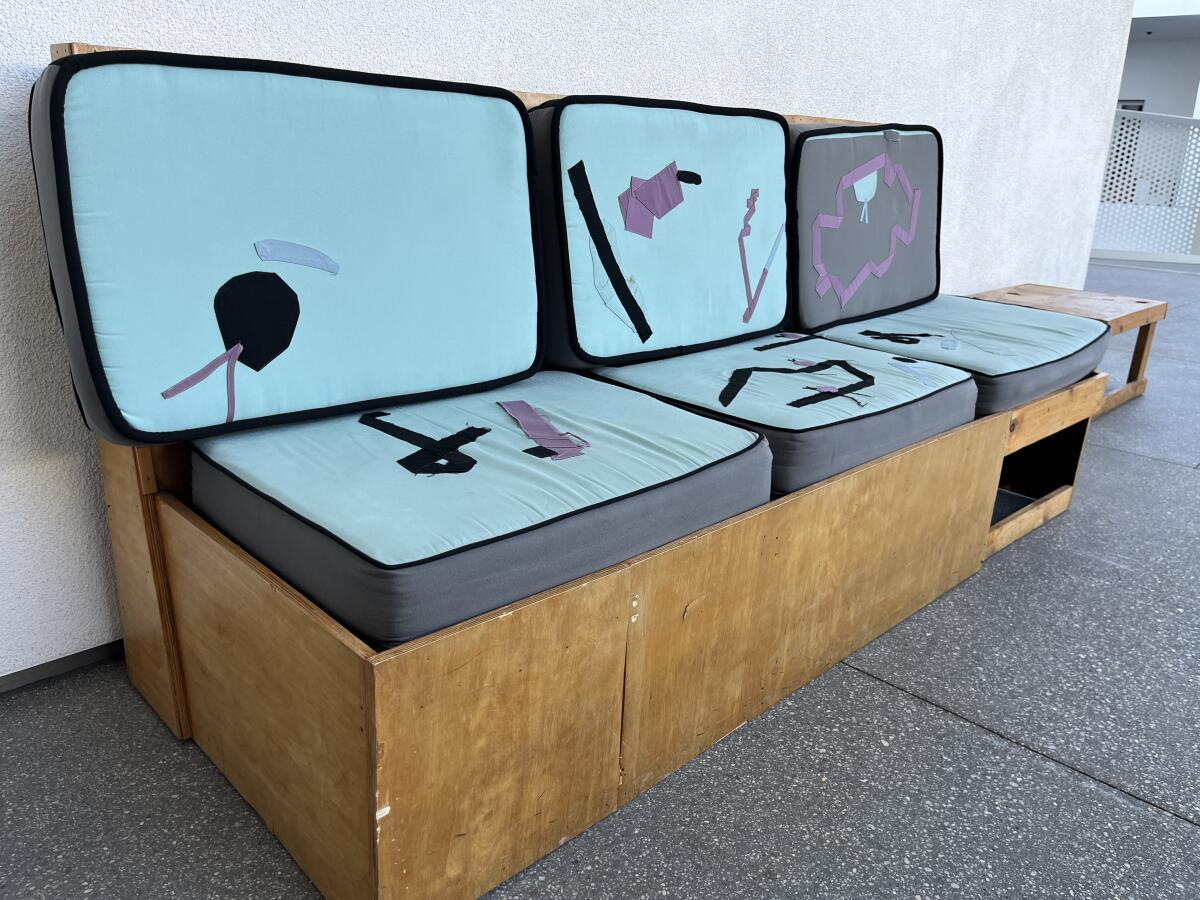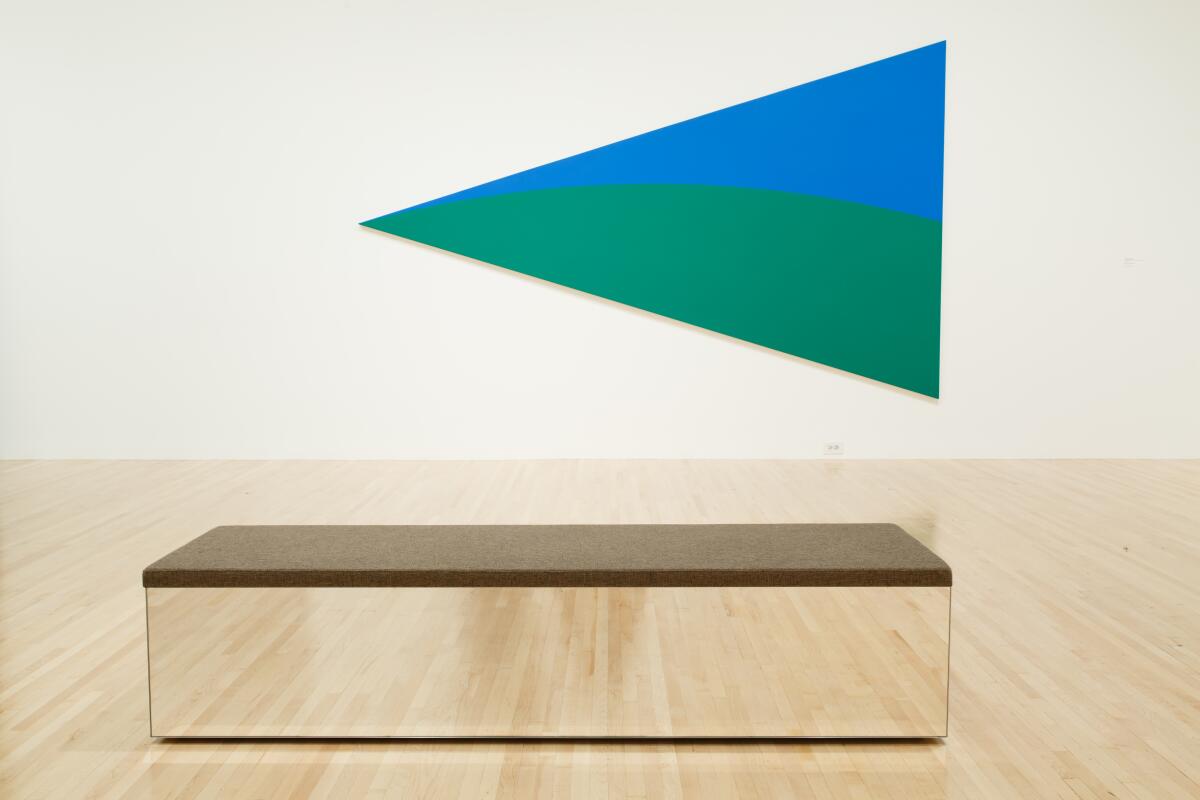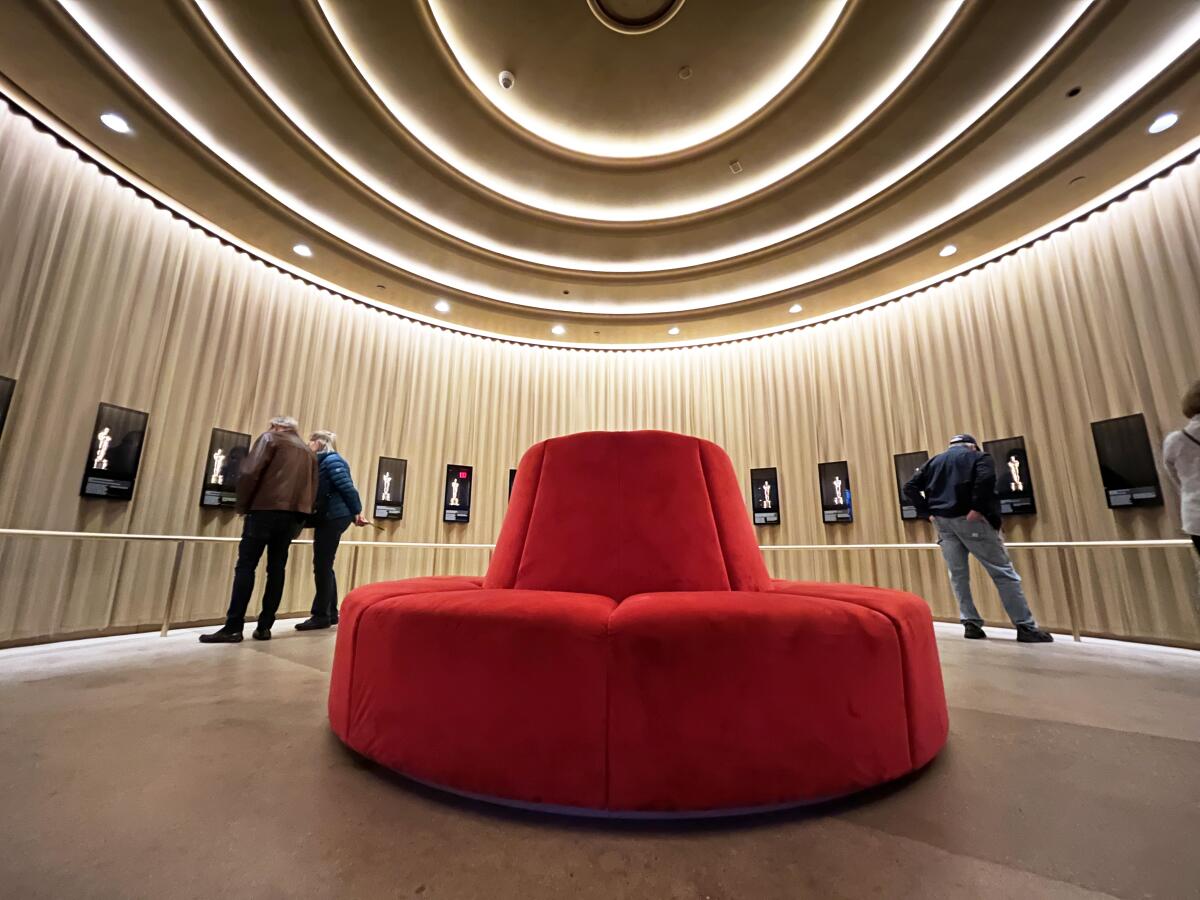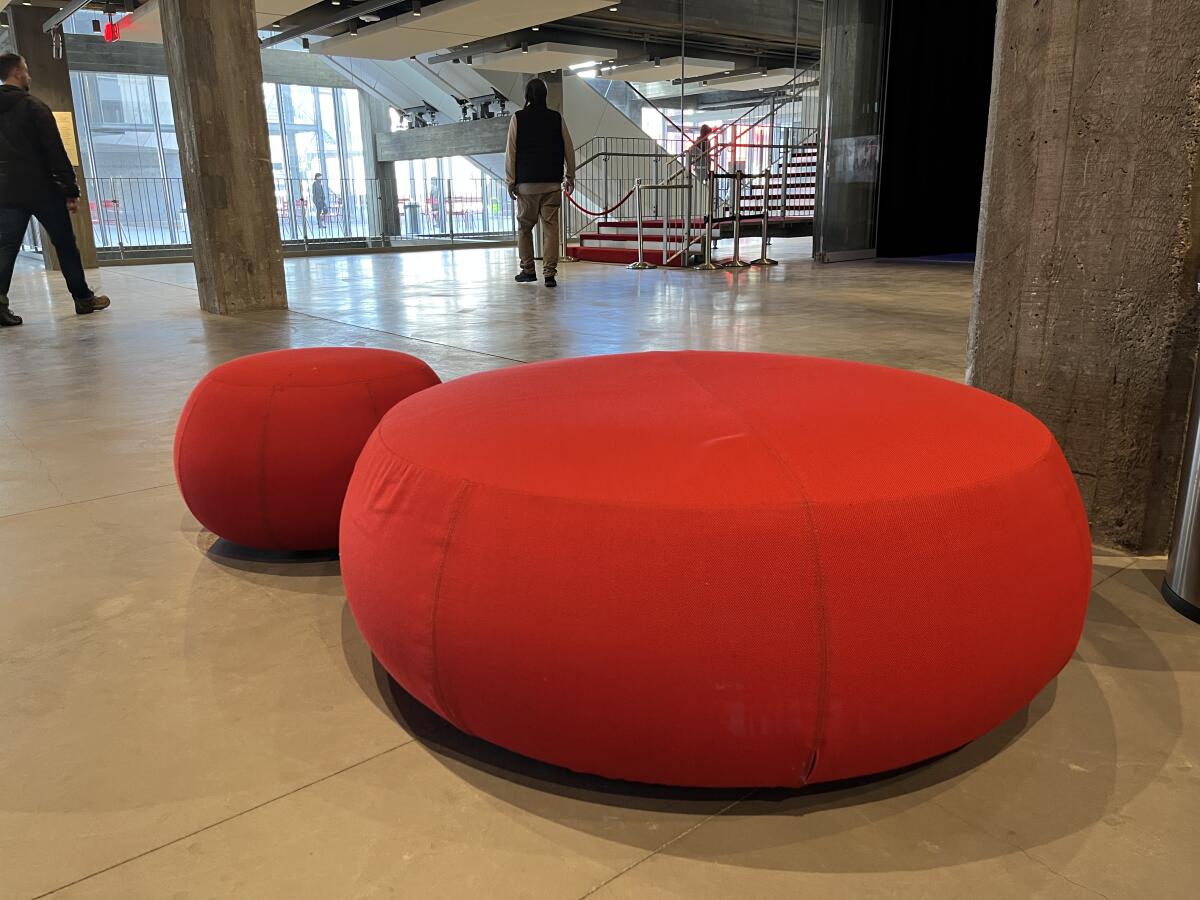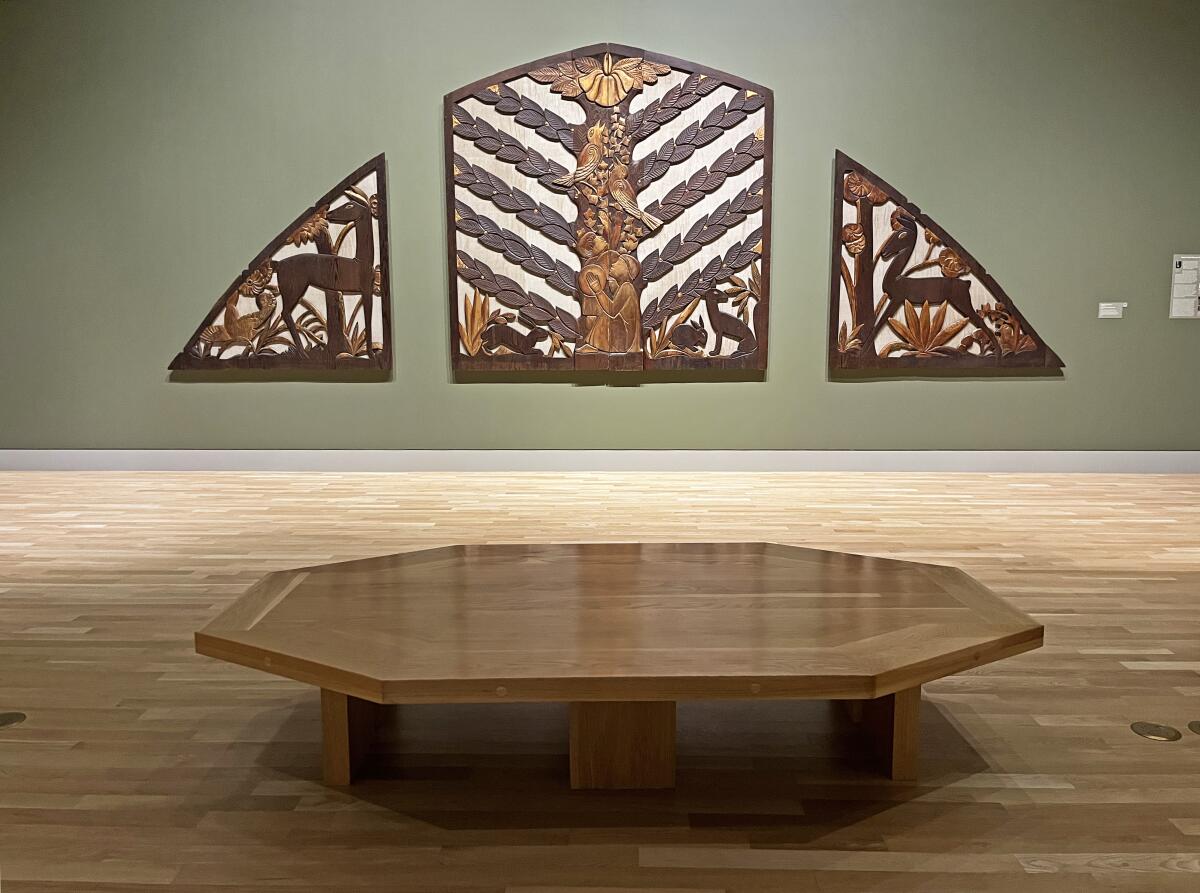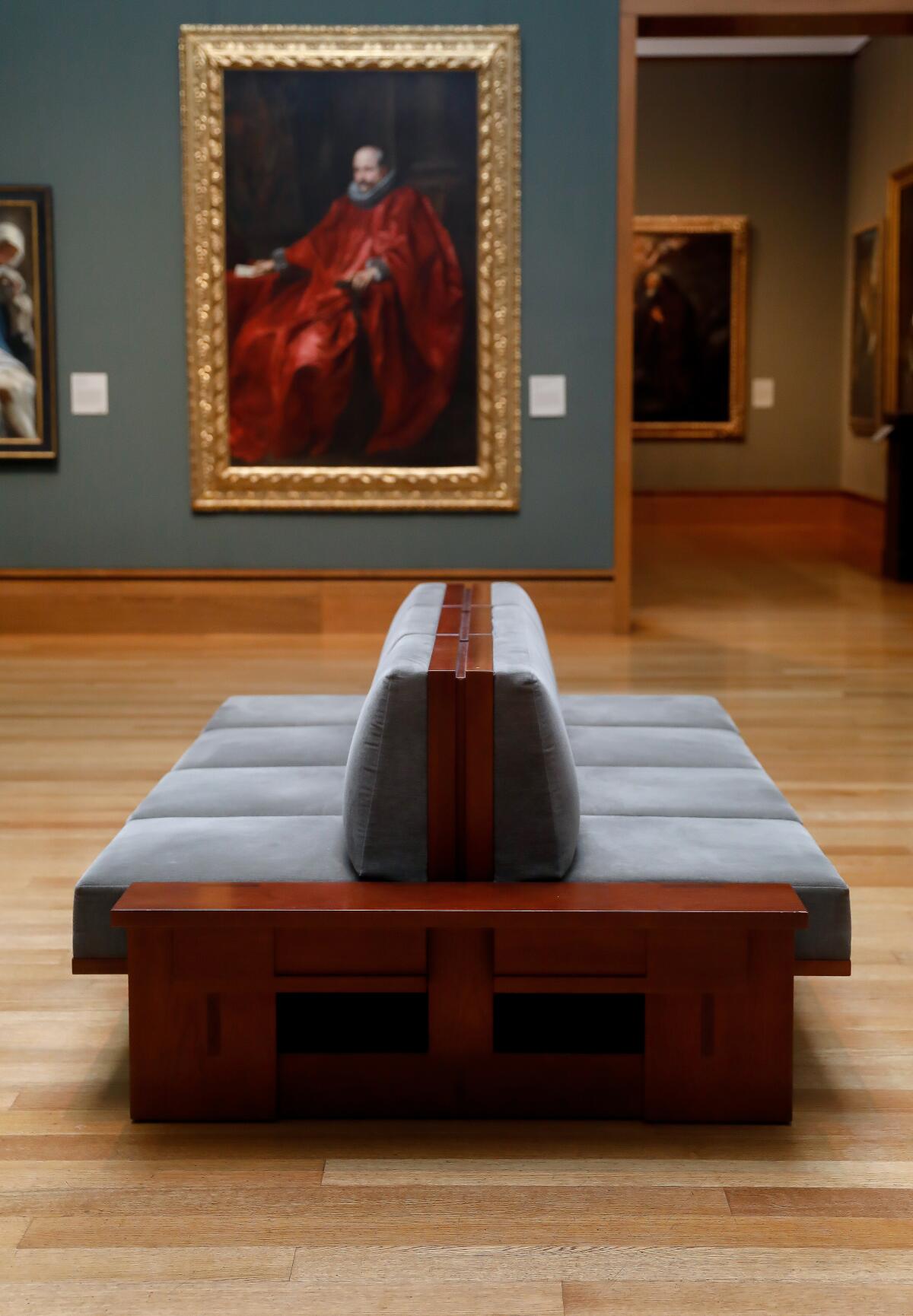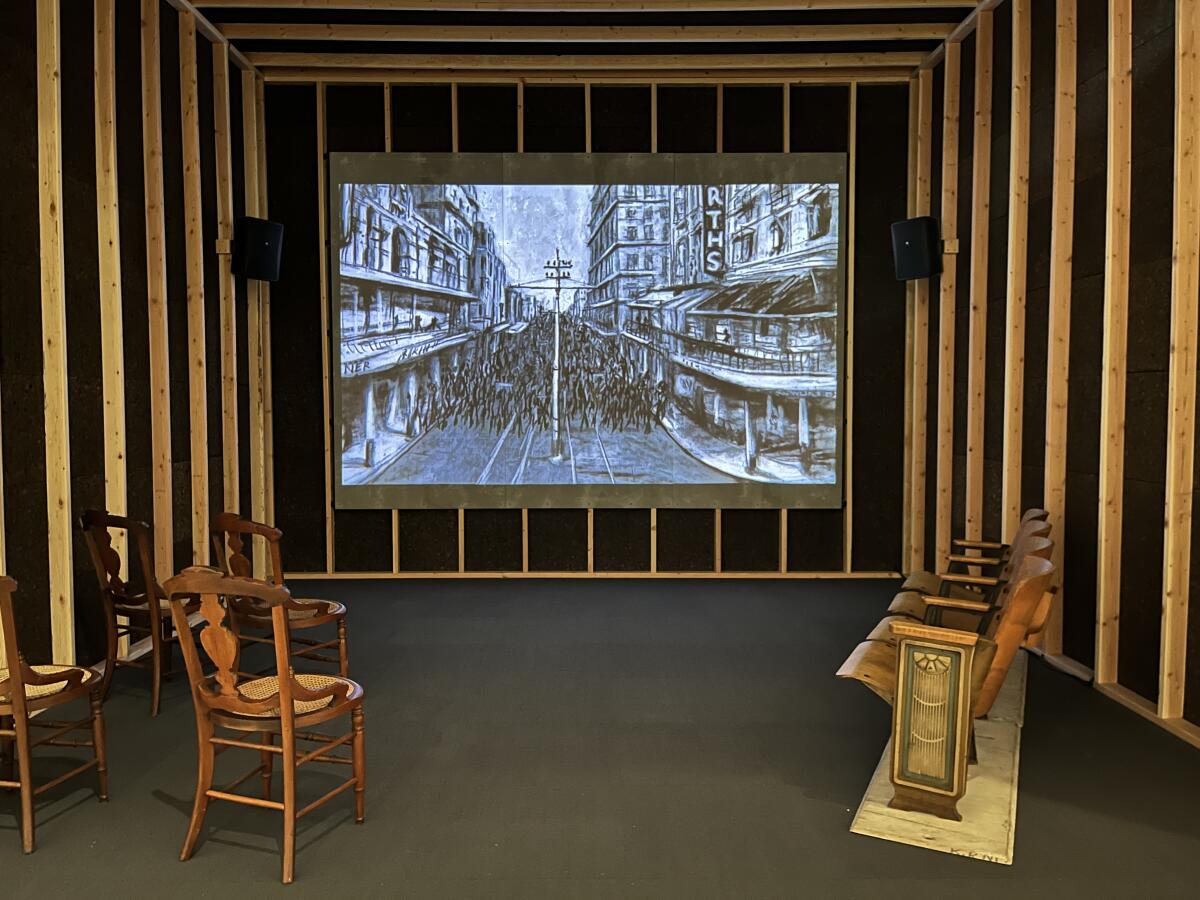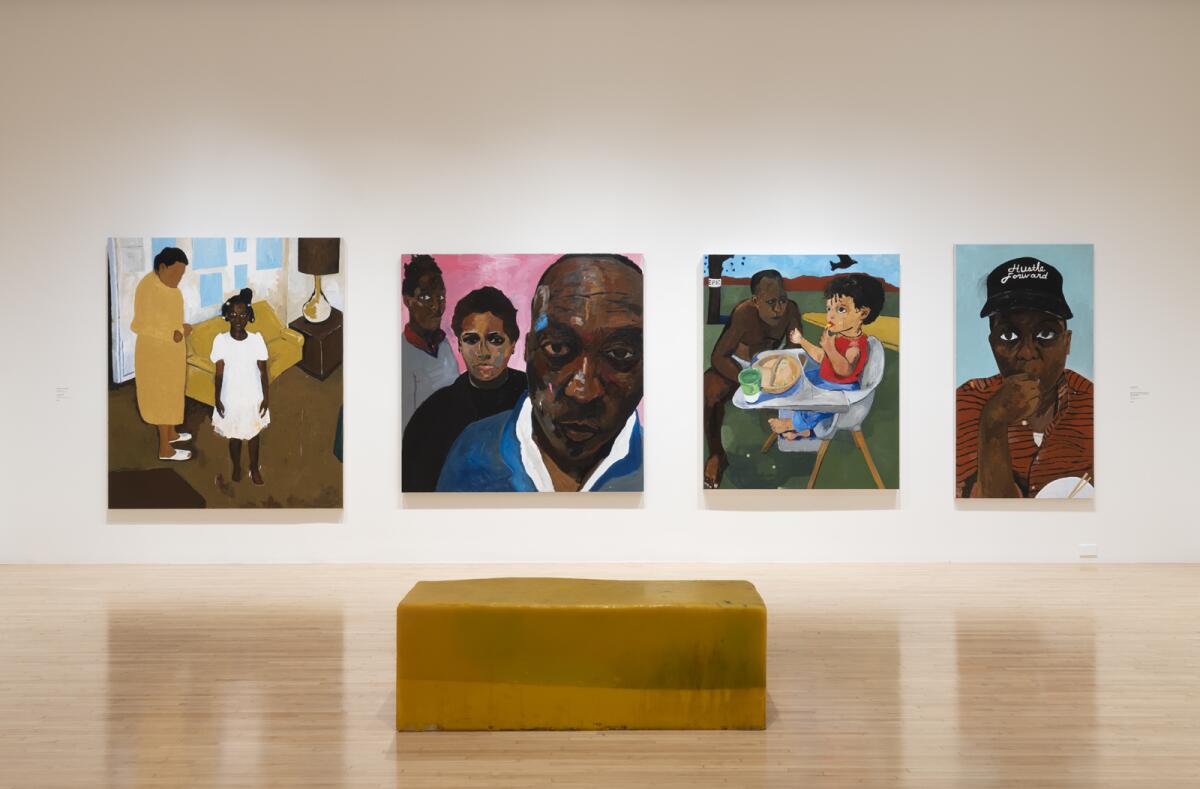When French novelist Marie-Henri Beyle — better known as Stendhal — paid a visit to the Basilica di Santa Croce in Florence, Italy, in the early 1800s, he became so overcome with emotion after gazing upon Volterrano’s “Sybils” that he not only experienced palpitations of the heart, “The well-spring of life was dried up within me, and I walked in constant fear of falling to the ground.”
Thankfully, there was a bench nearby. Otherwise he might have never written “The Red and the Black.”
The humble museum bench does it all. It provides a place to rest, admire a perplexing painting, ogle the crowd or check DMs. Experiencing a bout of Stendhal syndrome? Cue the bench. Benches also help make museums more accessible to people of all mobility levels. New York-based artist and accessibility activist Shannon Finnegan has made work related to this, including bright blue benches inscribed with text that reads, “This exhibition has asked me to stand for too long. Sit if you agree.”
Now that I’m at the age when I grunt when I stand, I have become deeply appreciative of benches. But all benches are not created equal. Some beckon the sitter with backrests and velvety upholstery; others offer all the comfort of a Calvinist pew, demanding that you sit ramrod straight — apparently the ideal posture for experiencing the wrath of God or contemporary video artists.
How do museum benches in the Greater Los Angeles area rate? In this highly scientific, first-ever report card on museum seating, I sit and tell:
